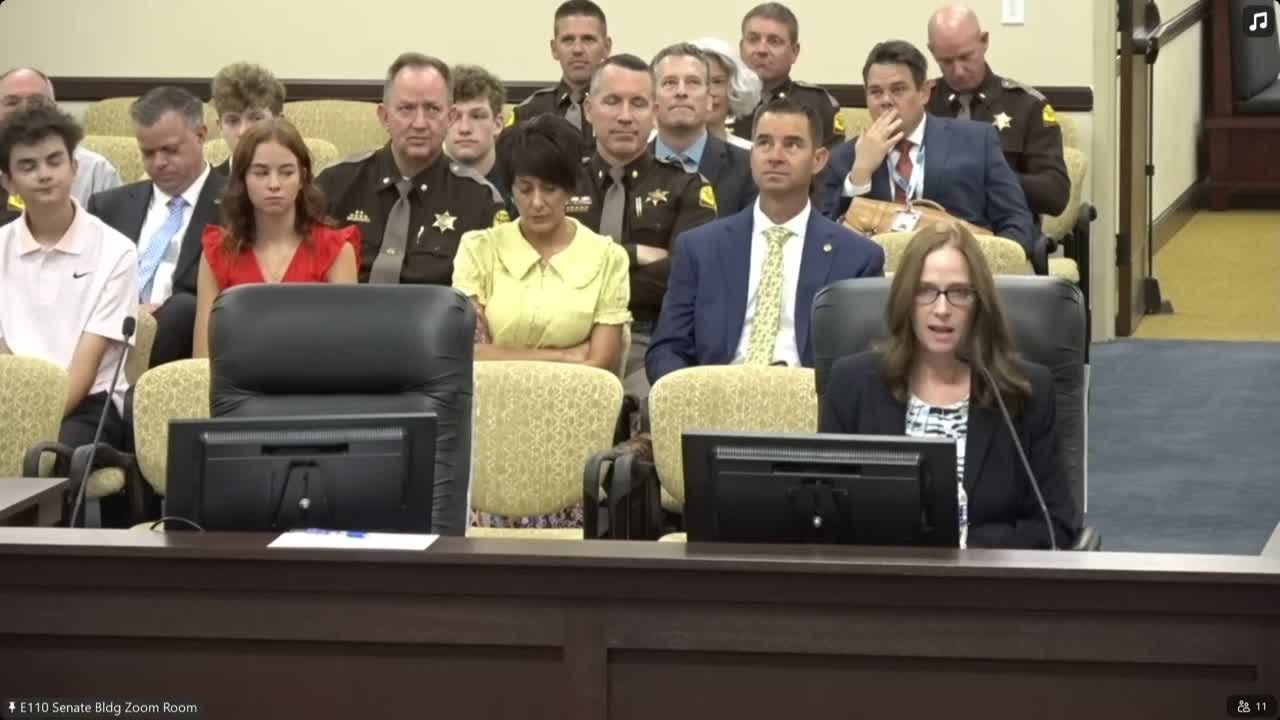Candidate Jane Blanchard outlines vision for Utah Board of Pardons and Parole
July 30, 2025 | 2025 Utah Legislature, Utah Legislature, Utah Legislative Branch, Utah
This article was created by AI summarizing key points discussed. AI makes mistakes, so for full details and context, please refer to the video of the full meeting. Please report any errors so we can fix them. Report an error »

During a recent meeting of the Senate Law Enforcement and Criminal Justice Confirmation Committee, a significant discussion unfolded regarding the nomination of a new pro tem member to the board. The nominee, who has a rich background in public service and law, shared her extensive experience in the juvenile and criminal justice systems, emphasizing her commitment to balancing public safety, victim input, and offender rehabilitation.
The nominee, who has spent nearly two decades at the Utah County Public Defender's Office, highlighted her journey from supervising youth at the Genesis Youth Center to her role as a juvenile probation officer. She noted the evolution of the juvenile sentencing matrix during her tenure, which has been instrumental in guiding fair sentencing practices. Her academic background includes dual bachelor’s degrees in psychology and sociology, as well as a law degree from BYU, which she pursued with the intention of becoming a prosecutor.
In her presentation, she expressed a strong desire to apply her knowledge and experience to the board's statutory responsibilities. She emphasized the importance of thoughtful decision-making, taking into account the severity of offenses and the needs of offenders, while also considering the input from victims and the community. Her approach aims to enhance public safety and foster safer communities through evidence-based practices.
The committee members listened attentively as she articulated her vision for the role, which includes ongoing performance measures and adjustments to ensure effective outcomes in the justice system. The nominee concluded her remarks by thanking the committee for the opportunity and acknowledging the support of her family, who were present at the meeting.
This nomination reflects a broader commitment within the Utah Legislature to ensure that individuals with extensive experience in public service and a deep understanding of the justice system are appointed to key positions, ultimately aiming to improve the effectiveness and fairness of the state's criminal justice processes.
The nominee, who has spent nearly two decades at the Utah County Public Defender's Office, highlighted her journey from supervising youth at the Genesis Youth Center to her role as a juvenile probation officer. She noted the evolution of the juvenile sentencing matrix during her tenure, which has been instrumental in guiding fair sentencing practices. Her academic background includes dual bachelor’s degrees in psychology and sociology, as well as a law degree from BYU, which she pursued with the intention of becoming a prosecutor.
In her presentation, she expressed a strong desire to apply her knowledge and experience to the board's statutory responsibilities. She emphasized the importance of thoughtful decision-making, taking into account the severity of offenses and the needs of offenders, while also considering the input from victims and the community. Her approach aims to enhance public safety and foster safer communities through evidence-based practices.
The committee members listened attentively as she articulated her vision for the role, which includes ongoing performance measures and adjustments to ensure effective outcomes in the justice system. The nominee concluded her remarks by thanking the committee for the opportunity and acknowledging the support of her family, who were present at the meeting.
This nomination reflects a broader commitment within the Utah Legislature to ensure that individuals with extensive experience in public service and a deep understanding of the justice system are appointed to key positions, ultimately aiming to improve the effectiveness and fairness of the state's criminal justice processes.
View full meeting
This article is based on a recent meeting—watch the full video and explore the complete transcript for deeper insights into the discussion.
View full meeting

